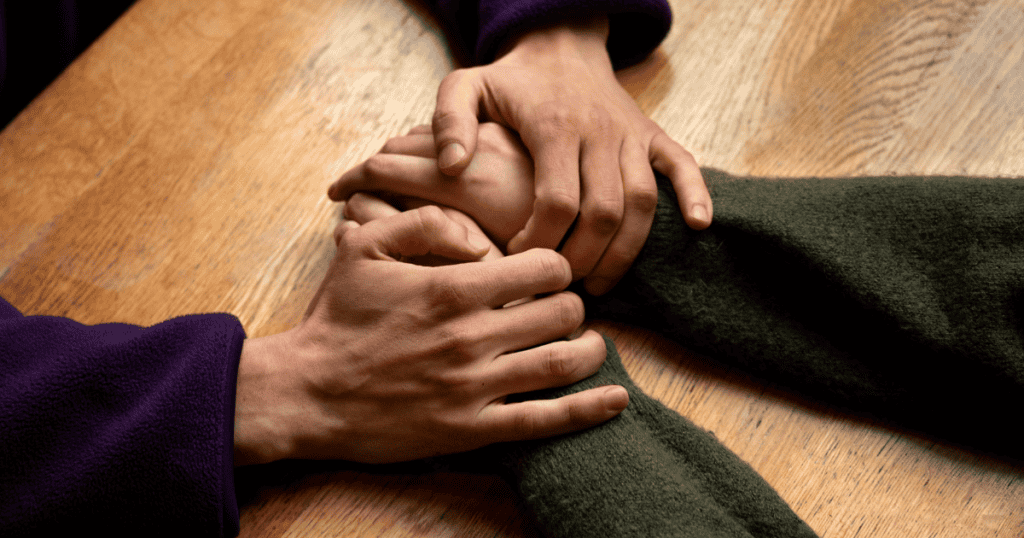Some people never stay down, no matter how hard a narcissist tries to crush them.
I know this because I’ve lived it.
Growing up, my older sister and I had moments of tension with our mother that often left me questioning myself.
There were times I felt manipulated, invalidated, and like my voice didn’t matter.
Yet, even in those moments of doubt, I realized something critical: my mindset was my ultimate weapon.
It wasn’t instant, and it took repeated practice to strengthen, but every small decision to reclaim my power added up.
I remember one evening after a particularly harsh argument.
My father, a few of my cousins, and even my husband reminded me that I had a choice in how I responded.
That night, I decided I would not let anyone dictate my happiness or my sense of self-worth.
There’s one specific mindset shift that makes you impossible to break, and narcissists hate it.
It’s not about ignoring the abuse or pretending it didn’t happen.
It’s about reclaiming control and refusing to let anyone else steer the outcome of your life.
Table of Contents
The Mindset That Makes Narcissists Lose Their Power

The mindset that breaks a narcissist’s grip is rooted in an internal locus of control.
In simple terms, it’s taking the wheel back from a narcissist’s influence.
Instead of blaming others for your circumstances, you recognize that while you cannot control their actions, you can always control your response.
It’s not denial nor minimizing what happened.
It’s refusing to let someone else dictate the trajectory of your life.
Imagine a war room where people with this mindset are not waiting for rescue.
Rather, they are strategizing, planning their next move, and positioning themselves to rise stronger.
For me, that war room often looked like quiet evenings at home, journaling and reflecting after tense narcissistic family interactions.
I would map out how to maintain boundaries without burning bridges unnecessarily.
Sometimes it was taking long walks to process frustration.
Other times, it was diving into books or podcasts that reinforced self-worth and resilience.
I even created little rituals with my husband and supportive cousins.
Moments that reminded me I wasn’t alone and that my power wasn’t defined by anyone else.
That sense of agency became my secret weapon.
And it’s exactly what narcissists fear the most.
How Does This Mindset Look in Real Life?

They See Healing as Non-Negotiable
People who rise after narcissistic abuse don’t see recovery as optional. It’s inevitable.
They seek strategies, not sympathy, to regain their power.
You can see their commitment to recovery in the practical habits they build into everyday life:
- They read psychology books and self-help resources.
- They journal to process emotions without letting them spiral.
- They set boundaries with family members and enforce them consistently.
- They create routines that nurture mental and emotional well-being, like meditation, exercise, or mindful reflection.
- They celebrate small victories.
In my own life, my father and cousins from my mother’s younger brother supported me in subtle but powerful ways.
They didn’t fix my problems. They helped me see my options.
My husband, too, was a steady pillar of encouragement, reminding me that my healing was worth prioritizing.
Their support reinforced that narcissistic abuse recovery isn’t dependent on anyone else.
It’s something I must actively claim every day.
They Take Tactical Accountability

Acknowledging the narcissist’s red flags without self-blame is a hallmark of this mindset.
Past mistakes become intelligence for future protection, not chains of guilt.
- “I didn’t notice the manipulation at first, but now I can spot it.”
- “I know my triggers, and I have tools to manage them.”
- They review conflicts calmly, asking: What worked? What could I do differently next time?
I remember a time when a misunderstanding with my toxic brother escalated because I didn’t set clear boundaries.
Instead of sinking into shame, I reflected on the misstep and adjusted my approach.
Then, I approached future conflicts strategically.
This is tactical accountability in action.
They Don’t Wait for the Narcissist to ‘Make It Right’
Instead of chasing apologies or validation, this personality type creates their own closure.
They operate from self-issued justice, not victimhood.
For instance, when my narcissistic mother refused to acknowledge a hurtful comment, I didn’t let it linger.
I reaffirmed my boundaries and moved forward on my own terms.
This isn’t coldness. It’s empowerment.
They understand that waiting for external recognition is a trap.
Only by owning their healing can they fully break free.
What It Looks Like When You’re Facing a Narcissist’s Fallout?

Internal Locus Operators
Those who operate from an internal locus of control turn setbacks into lessons.
They view challenges as opportunities to reinforce boundaries, strengthen resilience, and sharpen their emotional intelligence.
- A tense family gathering doesn’t derail them. It teaches them how to navigate future interactions.
- Every disagreement is seen through the lens of strategy rather than personal failure.
- They track patterns in behavior, theirs and others’, to anticipate challenges and respond proactively.
- They celebrate small victories, recognizing that consistent, thoughtful actions compound into lasting freedom.
I experienced this during holiday gatherings when my brother’s narcissistic behavior tried to pull me into old patterns.
I stayed calm, enforced boundaries, and reflected afterward on what worked.
This is a clear win for my internal locus.
Over time, these repeated successes built confidence.
It showed me that my emotional state and choices are mine alone, no matter how others act.
External Locus Operators (And Why They Stay Stuck)
By contrast, people with an external locus of control remain tethered to the narcissist.
- They blame the narcissist or others for every misstep.
- They wait for someone else to fix their situation, remaining in the cycle of manipulation.
- They ruminate on injustices instead of planning actionable steps.
- Their progress stalls because they measure their worth through others’ recognition.
A cousin of mine often falls into this trap.
She waits endlessly for acknowledgment or apology from narcissistic family members and remains stuck in resentment.
Meanwhile, I focus on actionable steps for my own peace.
Watching her struggle reminds me how critical mindset is.
Those who take ownership rise, and those who wait remain trapped in the emotional turbulence of others.
Getting Help Without Handing Over Your Power

How the ‘Always Rises’ Type Seeks Support?
Support is a tool, not a crutch.
People who rise after narcissistic abuse treat recovery like a mission: intentional, disciplined, and strategic.
- They invest time in therapy, coaching, or educational resources.
- They implement advice rather than relying on someone else to fix their life.
- They set clear goals for their recovery, tracking progress and adjusting strategies when needed.
- They celebrate small wins along the way, reinforcing their sense of agency.
For me, seeking support from my husband, father, and cousins felt empowering.
They offered guidance, not answers, and encouraged me to trust my own judgment.
When I applied techniques from therapy while discussing challenges with them, I noticed changes in my confidence and emotional resilience.
Over time, this approach transformed my relationships and self-perception.
This proved that support enhances power when used intentionally, not passively.
How the Stuck Type Seeks Support?
Those who remain stuck often half-commit to help, quit early, or focus on why nothing works.
- They confirm their doubts instead of acting.
- They become passive participants in their own recovery.
- They rely on others to “fix” them, giving away control.
- They measure progress through external validation rather than internal growth.
Seeing this contrast in family dynamics reinforced for me the value of intentional, fully committed self-care.
It reminded me that the difference between rising and staying trapped isn’t the presence of support, but how you wield it.
Why Narcissists Fear People Like This?

Narcissists thrive on control, validation, and dominance.
People who own their choices undermine that completely.
Losing control over you feels like losing oxygen to them.
Every rise you make proves they didn’t win.
This loss enrages them because their power depends on your compliance.
I recall the first time I realized my mother’s manipulations no longer affected me.
I was calm, collected, and strategic.
The relief was indescribable.
That moment was a quiet, personal victory that no apology or acknowledgment from her could ever take away.
What makes people truly terrifying to narcissists is their emotional independence.
Narcissists feed on reactions because those reactions reinforce their sense of control.
When someone becomes unshakable, calm, and self-reliant, it’s like removing the fuel from a fire.
The narcissist loses their audience, their leverage, and ultimately, their sense of superiority.
Another reason narcissists fear this type of person is the clarity of boundaries.
Narcissists often test limits repeatedly, looking for cracks they can exploit.
When a person consistently enforces boundaries without guilt, the narcissist encounters frustration they are unaccustomed to.
They may escalate, try new tactics, or even withdraw. All of which confirms that they no longer control the situation.
Additionally, narcissists fear those who transform adversity into power.
Every insult, manipulation, or attempt at gaslighting is absorbed, analyzed, and converted into insight, resilience, and strategy.
In my experience, even when my family dynamics were tense, I learned to anticipate triggers and respond thoughtfully rather than react impulsively.
This not only protected me but also strengthened my ability to thrive in challenging situations.
Finally, narcissists are terrified of people who live unapologetically.
Confidence and self-worth aren’t just armor.
They are a mirror reflecting everything the narcissist lacks.
The stronger you become in your authenticity, the more the narcissist feels exposed and powerless.
In short, narcissists fear people who reclaim their lives with intention.
People who rise after abuse don’t just survive.
They thrive.
And that is a threat a narcissist cannot control, no matter how clever, manipulative, or relentless they are.
Related posts:
- How to Upset Every Narcissist in Your Life (And Still Sleep Like a Queen)
- 8 Things Fearless Women Say That Instantly Make Narcissists Stutter
- How To Talk Like a Woman Narcissists Can’t Manipulate (Even If They Try)
- Learning To Be Fearless After Narcissistic Abuse: What Nobody is Telling You
- How I Stopped Feeling Guilty After Cutting Off My Narcissistic Family (And Why It Was Extremely Critical For Moving Forward)


